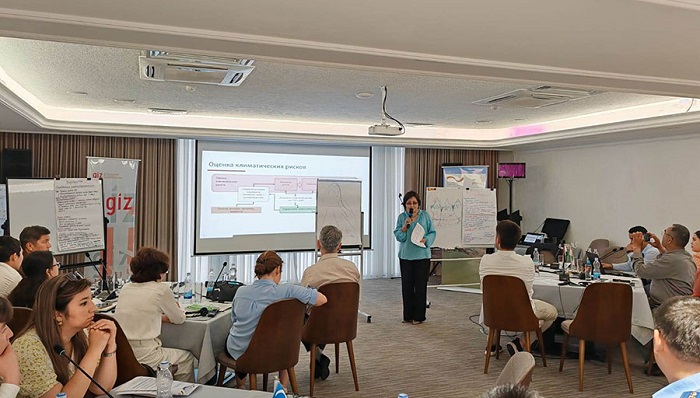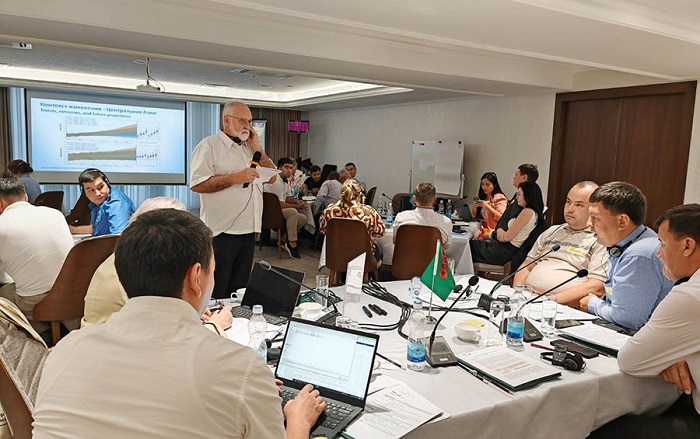 A group of Turkmen environmental specialists have completed training courses at the Central Asian University for the Study of Environment and Climate Change in Tashkent, Uzbekistan. The program, aimed at equipping state and public sector ecologists with climate change adaptation and risk assessment skills, is part of a broader initiative to address climate challenges in the region, newspaper Neutral Turkmenistan reports.
A group of Turkmen environmental specialists have completed training courses at the Central Asian University for the Study of Environment and Climate Change in Tashkent, Uzbekistan. The program, aimed at equipping state and public sector ecologists with climate change adaptation and risk assessment skills, is part of a broader initiative to address climate challenges in the region, newspaper Neutral Turkmenistan reports.
A total of 250 participants from all five Central Asian countries are taking part in the multiple-stream training, with a gender balance of one-third women. The program is a joint effort between the German Society for International Cooperation (GIZ) and the Regional Environmental Center for Central Asia (CAREC).
 As part of the training, participants developed and presented response plans for potential climate-related emergencies. These plans involved assessing climate risks and proposing scientifically-based mitigation measures.
As part of the training, participants developed and presented response plans for potential climate-related emergencies. These plans involved assessing climate risks and proposing scientifically-based mitigation measures.
The organizers offered structured presentations, practical examples, interactive sections, case studies, group work, and quizzes.
The participants of the courses could conduct a training session themselves, demonstrate the concept of “residual risks and cascading effects at the level of agricultural communities.”
The region has accumulated a wealth of experience in combating desertification, environmental management and agricultural production in an arid climate, and unique adaptation models operate in five countries.
Despite these achievements, participants emphasized the ongoing need to enhance professional skills and gain fresh perspectives on the region’s climate challenges. Sharing knowledge and experiences from different sectors and countries was a cornerstone of the training.
Beyond the classroom, attendees exchanged ideas on preserving river basin health, shared best practices, and built professional networks. ///nCa, 31 July 2024 (photo credit – Turkmenistan Golden Age)